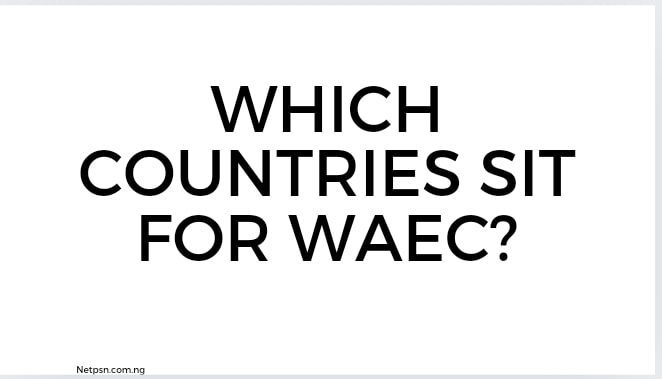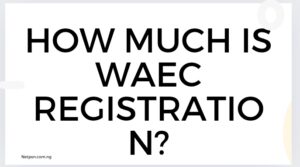Which Countries Sit for WAEC?
The West African Examinations Council (WAEC) is a prominent examination body that administers standardized tests in several West African countries. These exams are crucial for students seeking to further their education or secure employment within the region and beyond. In this article, we will explore the countries where WAEC is a recognized and mandatory examination, its significance, and how it impacts the educational systems in these nations.
Overview of WAEC
WAEC, established in 1952, plays a pivotal role in the educational landscape of West Africa. It conducts various examinations, including the West African Senior School Certificate Examination (WASSCE), which is essential for students who wish to gain entry into tertiary institutions or pursue certain career paths. WAEC’s reach and influence extend across multiple countries, making it a key component of the educational system in the region.
WAEC Member Countries
WAEC operates in five key West African countries. These nations are:
- Nigeria
- Ghana
- Sierra Leone
- The Gambia
- Liberia
These countries are bound by a common educational goal, and WAEC serves as a standardized examination body to ensure uniformity in the assessment of students across the region.
Nigeria
Nigeria is the largest member country of WAEC, both in terms of population and the number of candidates who sit for the exam each year. The WAEC examinations in Nigeria are a crucial stepping stone for students who wish to further their education. The Nigerian government recognizes WAEC as an essential part of the educational system, and success in the WAEC exams is often a requirement for admission into universities, polytechnics, and colleges of education.
Importance of WAEC in Nigeria
WAEC in Nigeria is more than just an examination body; it is a benchmark for academic excellence. The results from WAEC are used by tertiary institutions to assess the readiness of students for higher education. Furthermore, WAEC certificates are often required for job applications, making it a critical part of a student’s academic and professional journey.
Ghana
Ghana is another key member of WAEC, with the examination being a significant part of the educational system. The WAEC exams in Ghana are known for their rigorous standards and are highly respected both within the country and internationally. Ghanaian students often view success in WAEC as a critical achievement that opens doors to higher education and employment opportunities.
WAEC’s Role in Ghanaian Education
In Ghana, WAEC serves as a standardized measure of academic performance, ensuring that students across the country are assessed on an equal footing. The WAEC results are a primary criterion for university admissions, and students often prepare for years to excel in these exams. The Ghanaian government and educational institutions place a high value on the integrity and reliability of WAEC exams.
Sierra Leone
Sierra Leone, like its neighbors, relies on WAEC to assess the academic capabilities of its students. The WAEC exams in Sierra Leone are crucial for students aiming to pursue higher education, both within the country and abroad. The examinations are conducted with a high level of scrutiny to ensure fairness and credibility.
Educational Impact of WAEC in Sierra Leone
WAEC has a profound impact on the educational landscape of Sierra Leone. The exams are seen as a rite of passage for students, and passing them is often considered a significant milestone. The Sierra Leonean education system integrates WAEC exams as a key component, and the results are used to determine eligibility for further education.
The Gambia
The Gambia, though smaller in size compared to other WAEC member countries, holds the examination in high regard. The WAEC exams are a critical part of the Gambian education system, providing students with the qualifications needed to advance to higher education or enter the workforce.
WAEC’s Influence in The Gambia
WAEC plays a vital role in shaping the educational outcomes in The Gambia. The results from WAEC exams are used as benchmarks for academic success and are required for entry into tertiary institutions. The Gambian government and educational bodies ensure that WAEC standards are upheld to maintain the credibility of the examination process.
Liberia
Liberia is the fifth member of WAEC, where the examination is a key determinant of students’ academic and professional futures. The WAEC exams in Liberia are held to high standards, and passing them is crucial for students who wish to pursue higher education or seek employment.
Significance of WAEC in Liberia
In Liberia, WAEC exams are seen as a gateway to success. The results are used to assess students’ readiness for higher education and are often required for job applications. The examination process is rigorous, and the Liberian government works closely with WAEC to ensure the exams are conducted fairly and transparently.
Why WAEC is Crucial for These Countries
WAEC plays an essential role in the educational systems of its member countries. The standardized nature of the exams ensures that students are assessed on the same criteria, regardless of their location. This uniformity helps maintain educational standards across the region and provides a reliable measure of academic achievement.
Uniform Educational Standards
One of the primary benefits of WAEC is the establishment of uniform educational standards across West Africa. By administering the same exams in multiple countries, WAEC ensures that students are evaluated on a level playing field. This consistency is crucial for maintaining the quality and credibility of education in the region.
Pathway to Higher Education
For students in WAEC member countries, passing the WAEC exams is often the only pathway to higher education. Universities and other tertiary institutions require WAEC results for admission, making the exams a critical step in a student’s academic journey. The rigorous nature of the exams ensures that only qualified students gain entry into higher education, which helps maintain the integrity of the educational system.
Employment Opportunities
WAEC results are not only important for academic progression but also for employment. In many WAEC member countries, employers require WAEC certificates as proof of academic qualifications. This requirement underscores the importance of the exams and highlights their role in shaping the career prospects of students.
Conclusion
WAEC is a cornerstone of the educational systems in Nigeria, Ghana, Sierra Leone, The Gambia, and Liberia. The exams serve as a critical benchmark for academic achievement and are essential for students who wish to further their education or secure employment. By maintaining high standards and ensuring uniformity in the assessment process, WAEC continues to play a vital role in shaping the future of students in West Africa.
FAQs
Q1: What is the purpose of WAEC?
WAEC aims to provide a standardized examination that assesses the academic abilities of students in its member countries. The results are used for university admissions, job applications, and other educational purposes.
Q2: Which countries participate in WAEC?
WAEC is conducted in five West African countries: Nigeria, Ghana, Sierra Leone, The Gambia, and Liberia.
Q3: How important is WAEC for university admissions?
WAEC results are crucial for university admissions in its member countries. They serve as a primary criterion for determining a student’s eligibility for higher education.



















+ There are no comments
Add yours